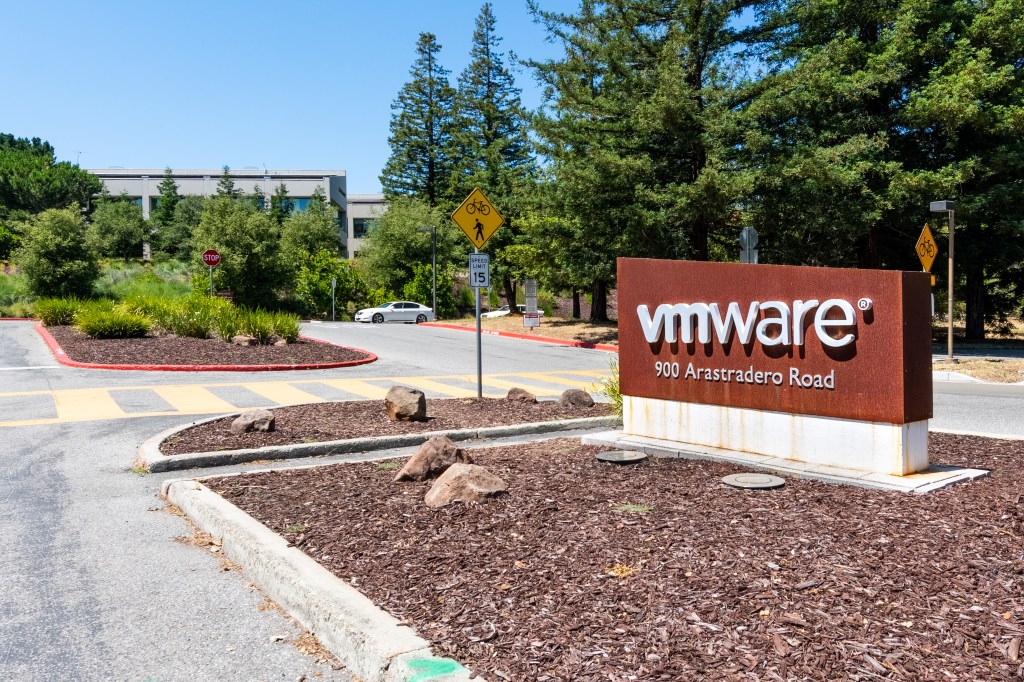Over the weekend, rumors began flying that chipmaker Broadcom was interested in acquiring VMware, the company best known for commercializing the virtual machine concept that gave birth to cloud computing. Bloomberg first reported the potential deal on Sunday.
VMware will not come cheap. It had a market capitalization in the neighborhood of $40 billion before the potential deal was reported, a figure that rose some 20% today to around $48 billion as investors placed bets that Broadcom would pay a hefty premium for the smaller company. Conversely, Broadcom is down over 2%.
VMware has expanded into cloud-native technologies over the years and has a diversified business, much of which is related to the cloud. Broadcom, on the other hand, isn’t involved in much of that, making it seem like a poor match. Probably because it is.
Broadcom builds semiconductors. With a market cap of over $220 billion, the company has tried to diversify in recent years by acquiring software companies to take advantage of software license revenue as a hedge against the vagaries of the hardware market, just like other hardware-focused companies — hello, Cisco.
It spent over $18 billion in 2018 to buy legacy enterprise software company CA Technologies and another $11 billion a year later for Symantec’s legacy security business. Those are very different animals from VMware, which is still a viable company and not some dinosaur with a portfolio of licensing deals on the books that a company like Broadcom can take advantage of.
So why is the deal in the offing, given the apparent lack of fit from a high-level perspective?
Square pegs, round holes
Patrick Moorhead, founder and principal analyst at Moor Insights & Strategies, said it’s not just our lack of imagination: There really isn’t much connective tissue between the two companies. But one thing that many tech companies do have today is financial liquidity. From that perspective, the potential VMware deal is all about putting Broadcom’s money to work in something other than chips.
“There’s likely very little strategic synergy with much of Broadcom. But VMware is large, has a lot of cost to reduce and it can raise prices,” Moorhead explained. Ultimately, the potential acquisition looks to be about diversifying revenue: Broadcom has tried buying other chip companies — see the failed attempt to buy Qualcomm in 2018 — and has run into regulatory roadblocks, forcing it to look further afield.
Now, it’s going after software companies, regardless of whether there is a fit or not. “Because it is such a large player in chips, it had to stop buying large chip companies because larger chip acquisitions that would contribute to its strategy would be thwarted by the regional antitrust units.”
Why is VMware vulnerable to a takeover?
In our coverage of Box’s investor woes, the situation at Dropbox, what is happening with Zendesk and the travails of other cloud companies, we’ve learned a key lesson: Slowing growth is an invitation for hostile deal-making and other forms of external meddling.
While VMware is not exactly analogous to these companies, it will report its latest quarterly results this Thursday, so we’ll get a good look at its current health then. But in its last report from February, the company reported $3.53 billion in revenue, which was up just 7% from a year earlier. Sure, the company’s subscription and SaaS revenue, making up $868 million of its total revenue, was up 23% over the prior year, but VMware’s overall pace of top-line expansion was muted.
That single-digit revenue growth could be a signal of why Broadcom sees this company as a target — or more precisely, the company’s single-digit growth could be why the value of VMware has fallen so sharply in recent months, leading to its place on the potential chopping block.
But don’t expect that any such deal will be quick, or easy. Twitter, which is going through its own acquisition saga today, wound up selling at a price that was below its recent highs, but the deal was initially blocked before the company relented to the offer after the news of the deal put downward pressure on the stock price.
VMware may simply value itself more richly than Broadcom is willing to pay, potentially placing the virtualization giant at odds with both its investors (as we saw with Zendesk) and the chipmaker.
Investors have decided that Broadcom is going to pay something around the $115-per-share mark, lofting VMware to that price point in regular trading today. That price is just over 31% off the company’s 52-week high. Anyone holding the company’s stock last week is having a great day compared to Friday, but a poor run if they had held over a longer time horizon. Are investors right that Broadcom can buy VMware for just over two-thirds of its recent valuation peak?
If so, we could be seeing a confluence of two things. First, the single-digit growth matter that we noted above. And, the fact that tech companies are takeover targets. Combine the two, and a potential VMware transaction appears more likely than not.
More when terms are announced — or things fall apart.
Why chipmaker Broadcom is spending big bucks for aging enterprise software companies































Comment